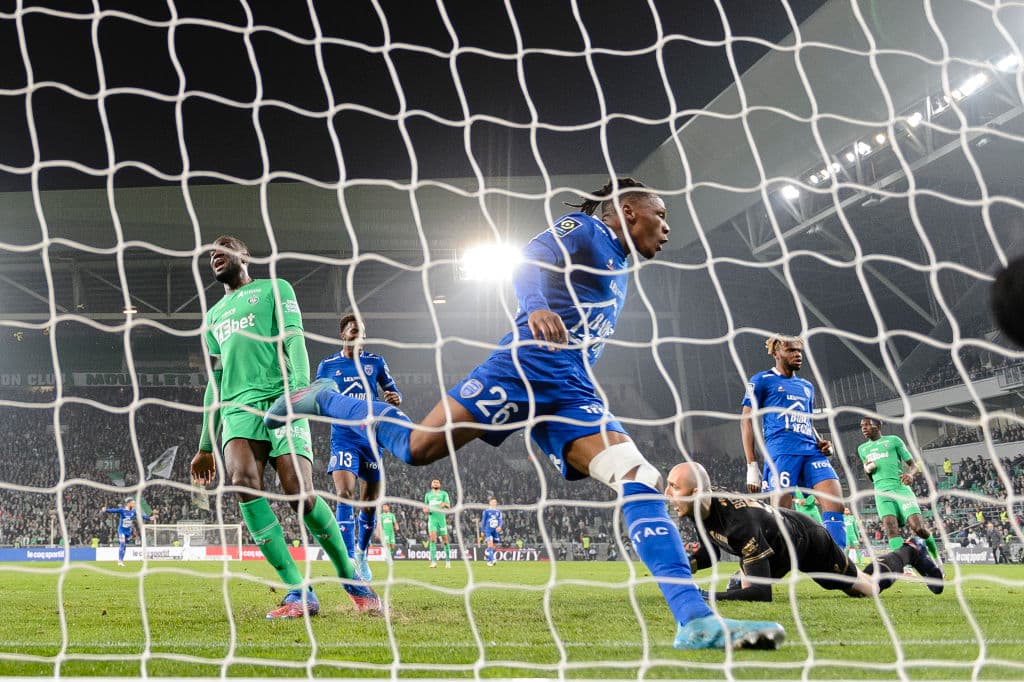That South Africa has just a single player featuring in Europe’s top five leagues is a telling indictment of the country’s football, which has seemingly been left behind by the rest of the world.
By Nick Said
England, Germany and France had seen a steady stream of South Africans since readmission to international football in 1992, Spain and Italy perhaps less so, but now that flow has dried up to almost nothing.
Strasbourg forward Lebo Mothiba is the only player in any of Europe’s elite leagues, cutting a lone path for Bafana Bafana at a level all players should aspire to. And he is hardly setting the world alight, with a single start in his team’s first 23 Ligue 1 games this season. Bafana Bafana forward Lyle Foster should win promotion to the Premier League with Burnley at the end of this season, which will at least take that number to two… if Mothiba is retained.
The question, therefore, is why this should be. There are multiple issues at play and perhaps the biggest being the fact that the domestic Premier Soccer League (PSL) now pays on a par with many European leagues, while the reported low standard of the national team means foreign scouts are not looking towards South Africa and there is a lack of desire from players at home to put in the hard yards.
While moves directly from South Africa to English, French and German clubs have been relatively common in the past, they are now a rarity with players needing to prove themselves in ‘lesser leagues’ in Belgium, Netherlands or Sweden first. And with no real cash incentive to do so, there is a reluctance to take the risk when the comforts of home are as well paid.
“In the years leading up to 1996, our domestic league was basically semi-professional. Guys had jobs in the day and then went to training in the evening,” former Bafana Bafana coach Eric Tinkler tells FORBES AFRICA.
“If you wanted to make it as a professional, the only chance you had was to go abroad, and that meant you had to work unbelievably hard.
“That hunger, that desire to go overseas… it is now not the same as it was for our generation. I see it. For many players it is just about the money. And they are well paid in the PSL, so where is their motivation to really push themselves to the next level in their careers?” the current Cape Town City coach says.
“Money comes before performance these days. For us, it was the other way around. We really needed to perform to start earning anything decent from the game and to start making a living from it. That drove a lot of us.”
Tinkler played in Italy, England and Portugal, and understands fully well how competing at that much higher level inevitably improves players, which in turn is beneficial for the national team.
Among the side that played in the victorious 1996 Africa Cup of Nations final, all but one either was playing abroad at the time or would go on to do so. Captain Neil Tovey was the odd man out, likely only
because readmission to international football came very late in his career and the ship had sailed.
But he recognizes that the strength of that team was their leadership and football intelligence built by expanding their boundaries and playing abroad.
“When that [1996] side needed to dig deep, we were very intense in our thought and our process,” he says. “Since then, there have been some very good (Bafana) teams with some very good players. But I think, mentally, we were all like captains on the field.
“We all knew our responsibilities and we didn’t have to look to the (coach on the) bench. When things went a little awry on the pitch, we could take care of it and identify problems a lot quicker than teams can now.”
The rise of West Africa as a key source of players from the continent has also hampered South Africans’ chances.
While it is generally accepted that South Africa players are more technically proficient, they largely lack the physical stature of players from Nigeria, Senegal and Ivory Coast… and that real burning desire to test themselves in Europe. For players from those countries, it is everything to them.
For South Africans, it seems more of a ‘nice to have’. All the while the national team suffers as those countries rise.
“We are definitely not where we should be… or could be,” Tinkler adds. “We do OK until about the age of 13, we can compete on a global level until then. But where other countries start to ramp it up from there, we have not managed to do so. “In fact, we start to go backwards and the growth of many players becomes stunted. I wish I could give you a good reason why, but there are probably multiple factors on
and off the pitch.”
